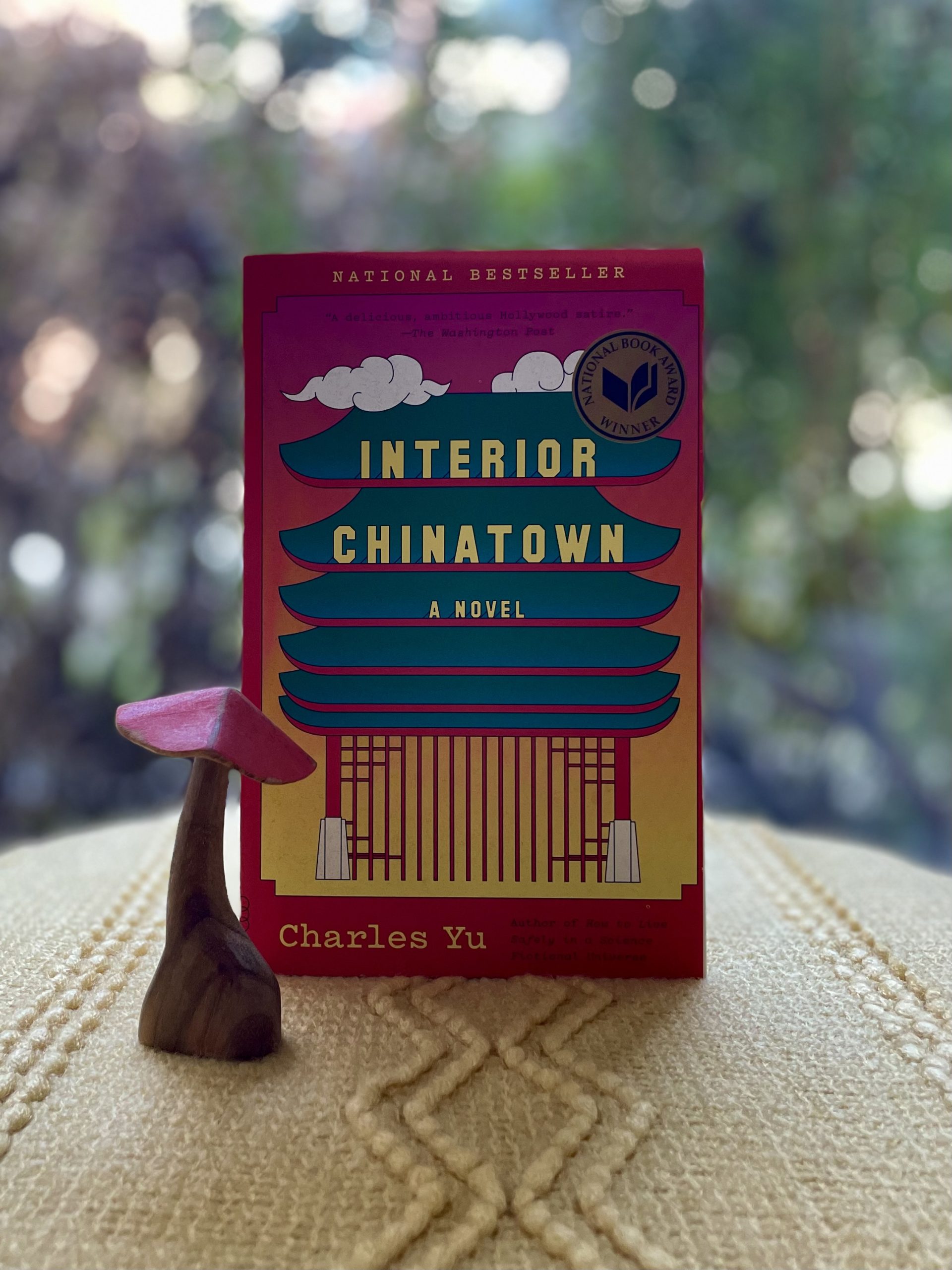This epistolary challenge has led me to really push my reading boundaries, even within a genre I love. I kicked the year off with Piranesi, a haunting and creative story told through journal entries – and a long-overdue read. And this month, I’ve had the pleasure to read Interior Chinatown, a novel written as a surreal screenplay of interior reactions. Once again, I’ve found myself surprised by the versatility of the format and the freedom that can come from telling stories in non-traditional ways.
Going inside Willis’s head
Yu’s approach to the screenplay format takes us directly inside his protagonist’s head, in a more intimate way than traditional first-person prose can manage. While the first-person can effectively convey a narrator’s thoughts, they often still seem filtered. First-person can seem like a reflection, or at least a translation, of thoughts, cleaned up so they’re presentable for others. (At least I often find that my spoken thoughts inherently have more structure than what’s actually in my head.)
But Interior Chinatown is structured as a screenplay, and a surreal one. Yu writes about stock characters – Black, White, Older Brother, Asian Seductress – alongside real people. In fact, the screenplay flows between character names, as they become more or less familiar, more or less real. The writing as just as fluid and almost erratic, with introspective monologues interspersed with montages and action scenes. There’s no way this screenplay reflects reality – so it must reflect Willis’s perspective.
The result is an intimate, stream-of-consciousness portrait of a man struggling to find himself. While reading Interior Chinatown, I found it impossible to disentangle the actual events from Willis’s take on them. Instead, facts and perspectives and influence all muddle together into a whirlwind flow. And the shifting narrative makes it much easier to identify with Willis – there’s something viscerally different about a character referring to themselves as “Kung Fu Kid” or “Special Guest Star”. Yu has amplified an often undervalued characteristic of the epistolary – its ability to force you into a character’s thought process. (While reading it, I kept thinking of The Sound and the Fury, and I’ve already recommended it to my most Faulkner-loving friend.)
Pathos overtakes logos
This deep intimacy with the character has huge payoffs in the final pages of the book, where Willis grapples with the internalized racism and identity crises that have plagued him throughout the book. The book culminates in a courtroom scene that reminded me of Lewis Carroll – albeit with overt cultural criticism. And what, in another novel, might have felt like a diatribe instead feels like the natural culmination of Willis’s growth.
By letting us live in Willis’s head for so long, Charles Yu makes it easier to understand his confusion, his angst, his lack of fulfillment. And therefore, when someone starts to lay out structural root causes – to point out that it doesn’t have to be this way – we can understand his reaction at a much more visceral level. Instead of appealing to logic, Yu forces us into emotion.
It’s a very neat way of squaring the circle that is cultural discourse in the American minority context. While elements of Willis’s experience are specific to his identity as a Chinese-American person, I found other elements Very Relatable to my own experience. And it’s a constant struggle to adequately explain why “small” things feel unfair, how microaggressions build and build and build, to an audience of people who feel entitled to their own “cultural enrichment”. Charles Yu’s approach is the best I’ve seen at dropping a rider straight into the experience. And Interior Chinatown is going to be on my mind for quite a long time….
A brief interlude on reading challenges
I am deeply grateful that I got to read Interior Chinatown this year. In fact, this epistolary reading challenge has served as a great opportunity to broaden my reading horizons. Because I’m trying to keep my engagement with the challenge consistent, I’m actively searching for new books that I may not have realized even fell in the genre.
In the past, my epistolary reading has been mostly happy accident. If there’s a book that looks like it contains letters or other kinds of documents, I’ll give it a shot. This means that I tend to find epistolaries in the genres I read most, as well as historical epistolaries that helpfully have words like “letters” and “post” in the title. These books are great, but their authors generally take advantage only of certain elements of the epistolary format.
But this year, I’ve found more epistolaries outside my typical reading material, and it’s really exciting! I’m reading different stories than ever before. I know that reading challenges can spin a bit out of control if you let them, but for me, this experience has been strictly positive. (Who knows, maybe I’ll even end up reading Cloud Atlas this year… One I have strictly avoided to date out of fear )
I would love to expand my reading horizons even further – any suggestions for what I take on in the epistolary space next?
Until then – stay cozy, and stay curious!
